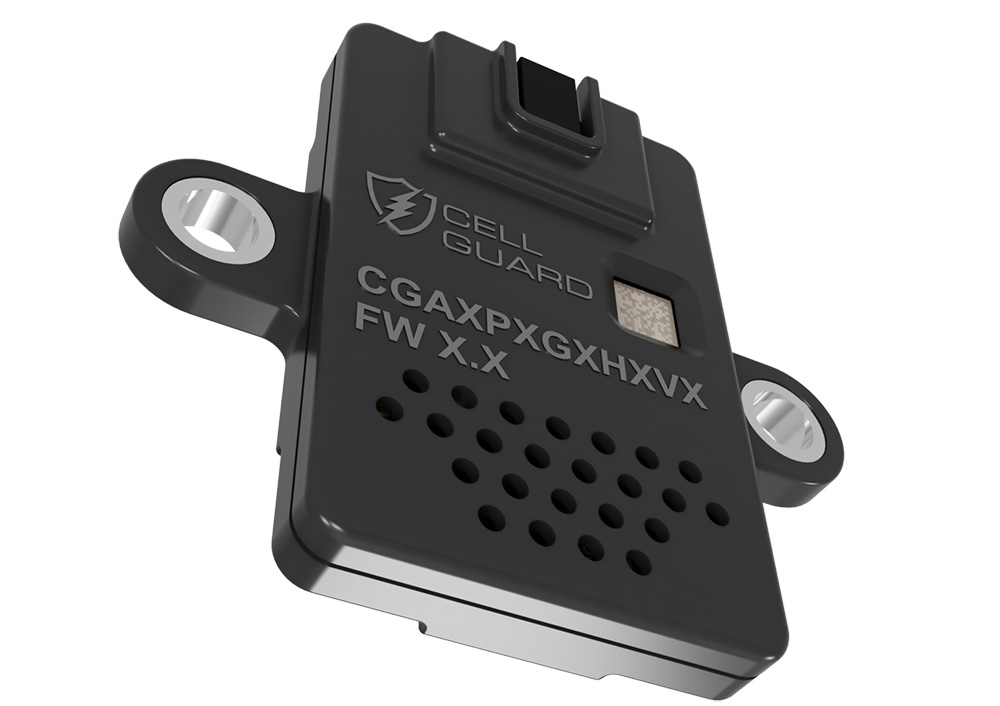UK-based Metis Engineering has launched Cell Guard, a battery safety sensor, to detect lithium-ion battery cell venting and monitor battery health in EVs and energy storage systems.
Cell Guard monitors volatile organic compounds (VOCs), pressure change, humidity, dew point, shock duration and shock loads (up to 24 G), unlike other battery cell monitoring systems (BMS), that only monitor temperature and voltage. This data can be compared to cell temperatures and pressure spikes to detect cell venting and alert the driver within minutes.
The sensor sends data to a control unit like the vehicle’s ECU through a customizable CAN interface, which can also interrupt the battery pack’s circuit to prevent thermal runaway. Cell Guard monitors the battery pack dew point and provides an alert before condensation falls on the battery contacts, which can cause shorting and thermal events. There is also a threshold-triggered programmable pin to control relays. If a threshold is achieved, the sensor transmits warnings via CAN and wakes the vehicle if a problem is identified.
“As cells age, the chance of one in a pack of hundreds or thousands having a fault increases significantly. The early detection of cell venting is vital to the safety of the vehicle’s passengers and everything in proximity,” said Metis Engineering’s MD Joe Holdsworth. “Cell Guard provides consumers with valuable and detailed information on used EV battery condition.”
Source: Metis Engineering


















































